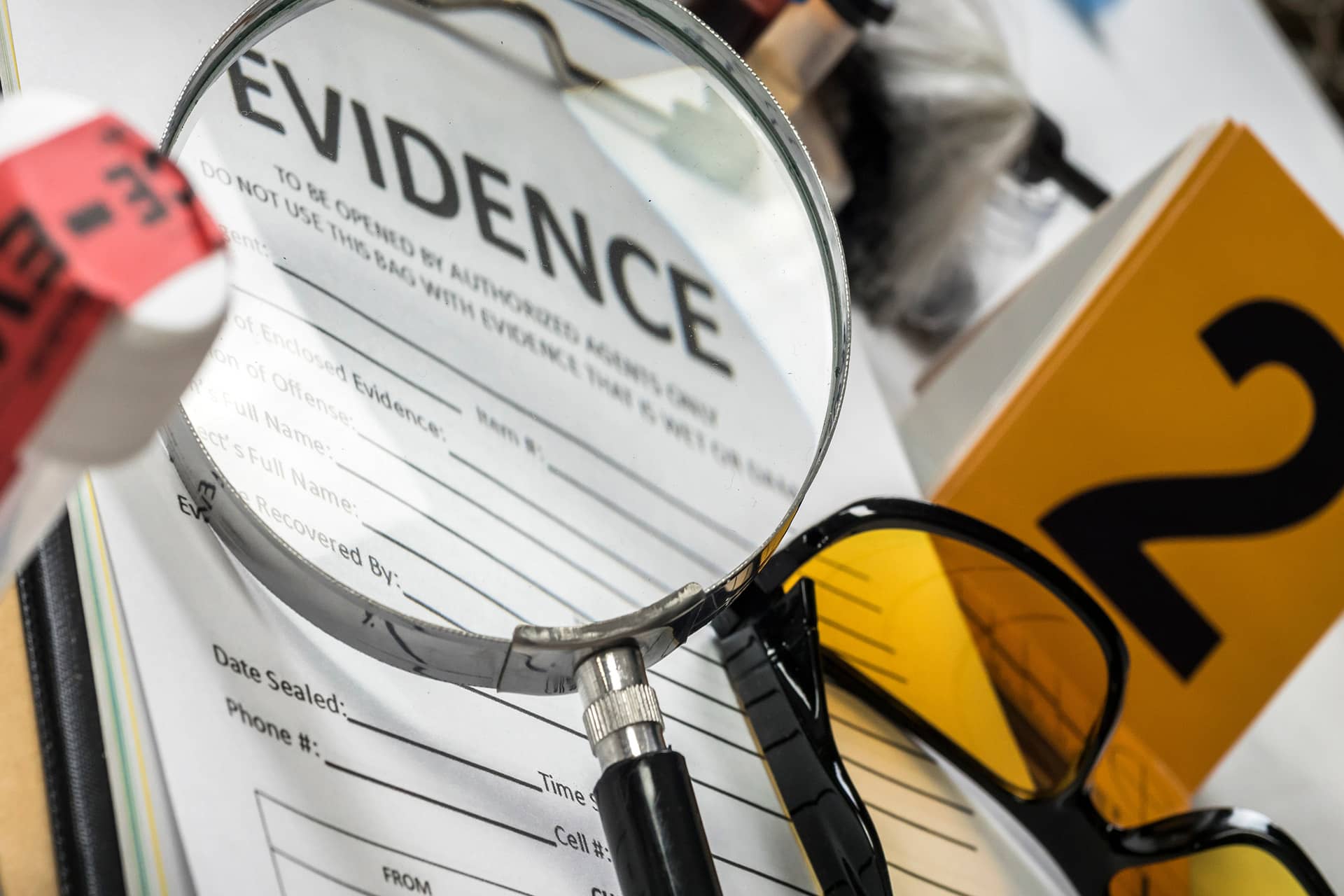How to Challenge Forensic Evidence in Court

In Texas felony prosecutions, forensic evidence can be the key to getting a conviction. From DNA analysis and fingerprint comparison to ballistics and drug testing, these scientific techniques can provide powerful support for the state’s case.
But forensic evidence isn’t always as bulletproof as it seems on TV. If you’re facing criminal charges where forensic evidence plays a role, understanding how to challenge this evidence could make the difference between conviction and acquittal.
What is Forensic Evidence?
Forensic evidence, also known as scientific evidence, is any evidence obtained by scientific methods such as ballistics, blood tests, and DNA testing.
This type of evidence is often used in criminal investigations and trials to link suspects to crimes or to establish key elements of an offense.
Some common examples of forensic evidence include:
- DNA profiles from bodily fluids, hair, or skin cells
- Fingerprints lifted from crime scenes or objects
- Ballistics analysis of bullets and firearms
- Drug analysis to identify controlled substances
- Blood spatter patterns to reconstruct crimes
- Trace evidence like fibers, paint chips, or glass fragments
These scientific techniques aim to provide objective, reliable proof to support criminal prosecutions. However, the reliability of forensic evidence has come under increasing scrutiny in recent years.
Can Forensic Evidence Be Thrown Out of Court?
Yes, forensic evidence can be thrown out if it was improperly collected, handled, stored, or analyzed. Your defense attorney can file a motion to suppress this evidence, which will lead to a hearing where the judge evaluates whether proper procedures were followed.
If successful, the evidence will be excluded from trial, meaning prosecutors cannot present it to the jury or use it against you.
Potential Issues with Forensic Science Evidence
Forensic techniques that were once considered unassailable have come under increasing scrutiny in recent years.
Several high-profile cases and studies have exposed serious flaws in commonly used forensic methods, including:
- Bite mark analysis: In 2016, the Texas Forensic Science Commission recommended a moratorium on the use of bite mark evidence in criminal cases, citing a lack of scientific validation and high error rates.
- Hair microscopy: The FBI has acknowledged that its hair comparison analysts gave flawed or exaggerated testimony in over 90% of cases before 2000, often overstating the significance of visual hair matches.
- Arson investigation: Outdated arson investigation techniques, such as relying on burn patterns and “crazed glass” to identify accelerants, have been discredited by modern scientific research.
- Fingerprint comparison: While fingerprint evidence is widely accepted, there is subjectivity involved in declaring a match, and contextual bias can influence examiners’ conclusions.
Even DNA evidence, often considered the gold standard in forensic science, is not immune to errors or misconduct. Cross-contamination, mislabeling of samples, and improper statistical analysis can all undermine the reliability of DNA test results.
Challenging the Admissibility of Forensic Evidence
To introduce forensic evidence at trial, prosecutors must establish its admissibility under Texas’s evidentiary rules. Criminal defense lawyers can challenge admissibility by filing a motion to suppress and arguing that the proposed evidence is unreliable or more prejudicial than probative.
In Texas, the admissibility of scientific evidence is governed by the landmark case Kelly v. State and Texas Rule of Evidence 702. Under this framework, the proponent of the evidence must show by clear and convincing proof that:
- The underlying scientific theory is valid;
- The technique applying the theory is valid; and
- The technique was properly applied on the occasion in question.
Defense attorneys can contest admissibility by arguing that the forensic technique at issue fails to satisfy one or more prongs of the reliability test. This may involve presenting expert testimony critiquing the validity of the method, exposing flaws in the lab’s protocols, or highlighting errors in the specific analysis.
Even if a judge deems forensic evidence admissible, your defense attorney can still argue that it should be excluded if its potential to unfairly influence the jury outweighs its actual value in proving the case. For example, if an expert witness exaggerates the reliability of their findings or presents them in a misleading way, the judge may prevent that testimony from being heard.
Undermining the Weight of Forensic Evidence at Trial
If the court ultimately allows contested forensic evidence, defense attorneys must work to undermine its significance in the eyes of the jury.
Effective strategies include:
- Vigorously cross-examining the state’s experts to expose limitations and potential sources of error in their analyses
- Presenting defense experts to critique the reliability and conclusiveness of the forensic techniques at issue
- Emphasizing the lack of validation studies or error rate data for the specific method
- Highlighting any breaks in the chain of custody or irregularities in evidence handling that could impact reliability
- Arguing for cautionary jury instructions regarding the proper weight of forensic evidence
The goal is to instill reasonable doubt by showing that forensic proof is not as definitive as prosecutors claim and must be viewed with a critical eye.
Fighting Back Against Flawed Forensics in Criminal Cases
Given the significant role forensic evidence can play in securing convictions, it is critical for Texas criminal defense attorneys to closely scrutinize any forensic proof offered by the state. Advances in scientific understanding have exposed weaknesses in many long-used forensic disciplines, providing fruitful avenues for evidentiary challenges.
If you are facing felony charges in Texas that hinge on forensic evidence, you need a defense team in your corner that understands this type of proof.
At Whalen Law Office, our criminal defense team has successfully contested the reliability and admissibility of forensic evidence in felony trials.
Don’t let questionable science jeopardize your freedom. If you are facing felony charges in Frisco, Sherman, or the surrounding areas, contact us today to discuss your case.



